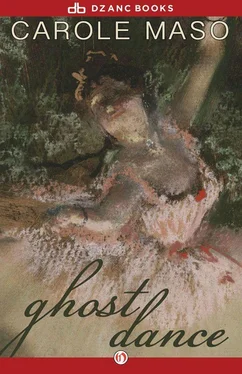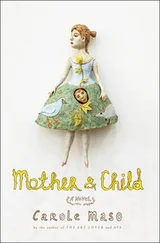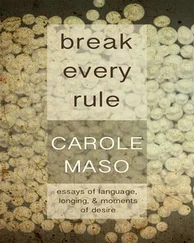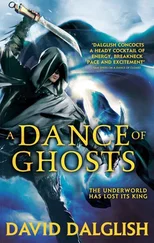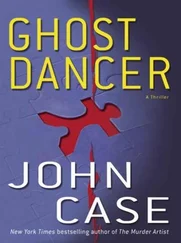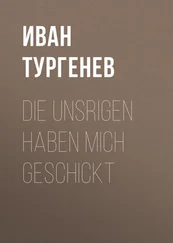“But, Father, she is beautiful,” my mother would have said back. “I want you to see her.” Then she would hesitate. “Father,” she’d say in a whisper, “she looks just like Mother to me.”
This was one thing my grandfather, running across Russia, Turkey, Svria, Lebanon, could not bear to hear. He pretended he did not.
“What good are girls?” he said back to her. “All we get are girls. Always girls! Let me know if you have a son.”
“No, Father,” she said, and she did not call him when Fletcher was born the next year.
Yet despite everything, despite even his indifference toward me, I cannot help liking Grandpa Sarkis — stubborn as a bull, thick as an ox, fat as the world.
In the old country you can grow silk on trees. In the old country you are worth your weight in gold. In the old country his people were slaughtered like sheep. I miss him, this enormous Grandpa Sarkis. When I get older and begin to gain weight myself, I know I will think of him. I will watch my hips turn to gold. And in the silk dress I someday buy I w ill see him in Paterson, setting the weave all day and all night for love. As I slip into that smooth dress, I’ll think of him, wherever he is, coaxing the silkworms into productivity for me.
“Turks,” my mother hisses to the children passing under her window on bicycles, when she does not feel well. “Turks,” she screams.
I have imagined the Topaz Bird with talons, curve-beaked, its brutal feathers sharpening into points. It devours mice in front of me. It lands on my mother’s head and draws blood.
“Turks,” she screams as the grass turns to worms, as her hair catches fire.
When the last Red Man shall have perished, and the memory of my tribe shall have become a myth among the white men, these shores will swarm with the invisible dead of my tribe, and when your children’s children think themselves alone in the field, the store, the shop, or in the silence of the pathless woods, they will not be alone…. At night when the streets of your cities and villages are silent and you think them deserted, they will throng with the returning hosts that once filled them and still love this beautiful land.
Chief Seattle
Keep going, I think to myself. There is no substitute for pain.
We were sitting on her bed next to her, but she was in the Sung Dynasty. She was in a German forest. She was blossoming under her dress for a man we could not see. She was next to us again, then far away. She was escaping from the Turks. She was in the center of the waterfall. Her hands fluttered in front of her face. She closed the book from which she was reading our bedtime story. I don’t know where she was.
“But what’s the ending, Mom?” we said and tugged at her golden robe.
“And then the children plucked the chocolate bonbons from the tree and put them in their pockets.”
“What tree?” we asked, thrilled, confused.
“What bonbons?”
The story she had been reading to us had been of a flock of migrating birds.
She smiled. “And the stormy sky turned blue, and the ocean became still. Swim off to bed now,” she whispered, “my minnows. Press your bellies into the sand and sleep.”
“Good night, Mom,” we said, our arms undulating by our sides.
I had just sunk down, it seemed, into my fish position when I saw her, first through water but then clearly. She was coming toward my bed in her white nightgown and holding a compass. Though I was frightened a little, I longed tobe with this fluid, fragrant, beautiful creature. She seemed so wispy and strange, a figment of herself, as she walked closer.
“Mother,” I said finally, for she is my mother, my beautiful mother, my recklessly beautiful mother. “What is it?”
She points, she looks at the compass, she whispers into my ear. “Everything’s all right now, sweetheart,” she says, tilting the compass so that I might see its thin needle. She has done this before. She will sit there next to me all night, moving now and then from one corner of the bed to another, hardly ever looking up from the compass, and saying over and over, “Everything’s all right,” until the sun comes up and she disappears in light.
“Children,” she screamed, “get up, wake up! Come quickly! Get up. Hurry!” she cried, calling us from our sleep. “No questions, now,” she said, “just hurry.” And with some superhuman strength she picked us both up and ran down the hallway with us to her room. She was crying. “Sit in the middle of the bed,” she instructed, “way far in the middle, away from the edges.
“My children are not safe,” she said, picking up the receiver of the phone and speaking into it. “I would like the Department of the Interior in Washington,” she said. “Hurry.” She dropped the phone to her side, lifted it to her ear again. “Jesus Christ, this is an emergency, I don’t have all day,” she said into the dial tone. “There’s no time.” She dropped the phone, opened a drawer, turned it upside down, and spilled everything onto the floor. “Don’t move!” she yelled to us. We huddled in the center of the bed. “Just don’t move!” Papers, scarves, jewelry covered the floor. She opened another drawer and turned it over, rummaging through its contents.
“Mom, what are you looking for?” Fletcher asked. “I could help you.”
“No, don’t. Don’t get up. Just hold on one more minute. I’m coming.” The Topaz Bird swooped down. She screamed. It woke my father who had fallen asleep downstairs in the chair in front of the fire.
“I’ve found it,” she said. “Everything’s going to be OK.” In her hand she held a large bolt of twine, the kind used for mailing packages. My father came in as she knotted the string around the first bedpost. She looked over to him. “Go and help the children,” she said.
“Oh, Christine,” he said, nearing her.
“Don’t touch me!” she screamed. “I have to work fast. Go to the children — please — please.”
My father came and sat in the center of the bed with us and forced our heads down into his arms. “Don’t look,” he whispered to us. But I could see her unraveling the bolt of string and tying it around the second post, then the third, and then the last, then circling the bed again and again until we were completely fenced in by it. My father’s arms were shaking but he held us tightly to him. When my mother was finally finished she grabbed China, the cat, and jumped over the railing of string and onto the bed.
My father opened his arms to take her in. His face was wet as if he had been crying or sweating, but his gaze was even and calm.
“There now,” he whispered. “There now, Christine. We’re all here now. We’re all all right.”
My mother sighed. “Yes, I know,” she said. My father loosened his grip. We were a pile of arms and legs and hands and paws on the bed. It was hard to tell whose arms were whose, whose legs, whose hair, we were so tangled in each other.
Only her voice hovered above us, separate. “We’ve escaped,” she said. “We’ve done it.”
Was it fire this time she had saved us from? Or flood? Was it a plague of insects or something less comprehensible? The phone, off the hook, was making loud, piercing sounds. My father moved to hang it up.
“No, Michael, no,” she cried. “You’ll be eaten alive.”
Slowly the bed began to move, slowly, slowly, as we sat huddled together in its center. The desk floated by, the chair, the clothes in the closet moved back and forth, back and forth.
“Mom,” I whispered, finding her at the center. “Mom,” I said, “we’re moving.”
She nodded. “We’re safe now, Vanessa,” she smiled. “We’re all here and it’s big and it’s white and it’s taking us somewhere so beautiful!” she said.
Читать дальше
